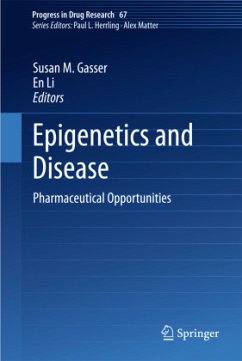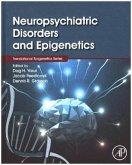Epigenetics has emerged recently as an important area of molecular biological studies. Epigenetic modifications lead to potentially heritable but reversible alterations in the expression of genes that determine cell fate. Epigenetic misregulation is thus often linked to degenerative diseases, cancer and neuronal disorders.
Recent biomedical interest in this regulatory system stems from the fact that epigenetic, in contrast to genetic, alterations are in principle amenable to pharmacological intervention. A few epigenetically active drugs, for example histone deacetylase inhibitors (HDACi) and DNA methyltransferase (DNMT) inhibitors, have been approved by FDA for treatment of cancers such as CTCL, MDS, and AML.
This volume explores the scientific background for clinical applications of epigenetically active drugs. Included are descriptions of epigenetic controls over gene expression, the post-transcriptional silencing of genes by RNA interference (RNAi) and microRNAs, as well as new findings from stem cell research which are relevant to pharmacological applications.
Hinweis: Dieser Artikel kann nur an eine deutsche Lieferadresse ausgeliefert werden.
Recent biomedical interest in this regulatory system stems from the fact that epigenetic, in contrast to genetic, alterations are in principle amenable to pharmacological intervention. A few epigenetically active drugs, for example histone deacetylase inhibitors (HDACi) and DNA methyltransferase (DNMT) inhibitors, have been approved by FDA for treatment of cancers such as CTCL, MDS, and AML.
This volume explores the scientific background for clinical applications of epigenetically active drugs. Included are descriptions of epigenetic controls over gene expression, the post-transcriptional silencing of genes by RNA interference (RNAi) and microRNAs, as well as new findings from stem cell research which are relevant to pharmacological applications.
Hinweis: Dieser Artikel kann nur an eine deutsche Lieferadresse ausgeliefert werden.








